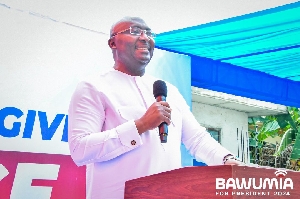- Home - News
- TWI News | TV
- Polls
- Year In Review
- News Archive
- Crime & Punishment
- Politics
- Regional
- Editorial
- Health
- Ghanaians Abroad
- Tabloid
- Africa
- Religion
- Election 2020
- Coronavirus
- News Videos | TV
- Photo Archives
- News Headlines
- Press Release
Business News of Wednesday, 27 February 2013
Source: B&FT
Manufacturing dying slowly
Manufacturing is being put to the sword by the lack of a conscious effort over the last seven years to strengthen the sector and halt the decline of its contribution to the country’s Gross Domestic Product (GDP).
The contribution of the manufacturing sector to the country’s GDP was 10.2 per cent in 2006; this fell to 6.8 per cent in 2010 and to 6.7 per cent of GDP in 2011, recording a dismal sub-sector growth of 1.9 per cent in that year.
Intensified import competition that has damped the competitiveness of local manufacturing companies; the energy situation in the country; high utility prices; low research and development efforts; high cost of inputs and raw materials; increases in tax rates; and removal of tax holidays are at the core of the decline in the sectors’ output.
Various initiatives introduced by government over the years to arrest the situation include National Industrial Policy, the Private Sector Development Strategy, the Industrial Sector Support Programme, and the National Export Strategy to improve competitiveness and enhance job-creation.
However, these initiatives have not yielded the desired results.
The textiles, aluminium, printing and some Fast-Moving Consumer Goods (FMGC) manufacturers are under immense pressure.
In the aluminium sub-sector, for instance, some foreign governments have subsidized the aluminium goods coming into the sub-region so that they can undercut local production and be sold cheaply.
Aluworks Limited (ALW), manufacturer of aluminium coils, flat-sheets, circles and corrugated roofing sheets, is one of the companies bearing the brunt of such unfair trading practices by the country’s trade partners.
Aluworks buys its raw metal from Volta Aluminium Company (VALCO) at the same world price as all other aluminium producers.
Nevertheless, goods that have all the way from China and have incurred freight, duty and clearance costs are being sold cheaper than goods made in Ghana-sometimes at prices even below raw material cost from VALCO.
The company now survives on the good reputation it built over the years as a producer of quality aluminium products within the sub-region.
President John Mahama in his State of Nation address delivered to Parliament last week assured of his government’s commitment to facilitate the emergence and growth of a strong manufacturing sector.
He said his government will review “the tax structure to reduce taxes paid by Ghanaian manufacturers to increase their competitiveness in the national and world market, and facilitate the establishment of an industrial development fund to provide a ready resource envelop for ailing and struggling manufacturing industries in Ghana.”
President Mahama said his government will facilitate the provision of “service plot within dedicated industrial zones to be developed in Sekondi-Takoradi, Tema, Kumasi and Tamale to support the local manufacturing companies in adding value to local products for a strong and viable domestic manufacturing sector.”
Aluworks is currently seeking to raise GHC3 million through equity financing, to help it grow to attain the potential that it is known to have.
Mr. Kwasi Okoh, Managing Director, said he is confident that with the right mix of investment capital expenditure and working capital, as well as restructuring of the company’s debt portfolio, the fundamental growth trend underlying its business will once again be resuscitated.
Part of the proceeds allocated for capital expenditure will be used to refurbish the company’s existing Cold Mill.
ALW’s current business is principally the production of cold rolled sheets for conversion into finished products by downstream players, many of whom have been set up from the company.
Half of the proceeds from the offer will be used to pay-off dollar-denominated debt. Although ALW is profitable at the operating level, interest and exchange losses have driven down the net profit of the company.
Once the second Cold Mill has been installed, the current mill will be commissioned for complete refurbishment.
It is anticipated that the refurbishment will take about six months. At the end of the two exercises, the capacity of the factory will be raised to about 50,000 tonnes per annum.










